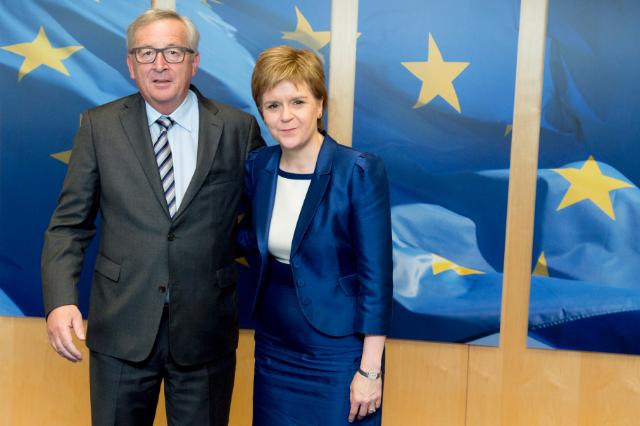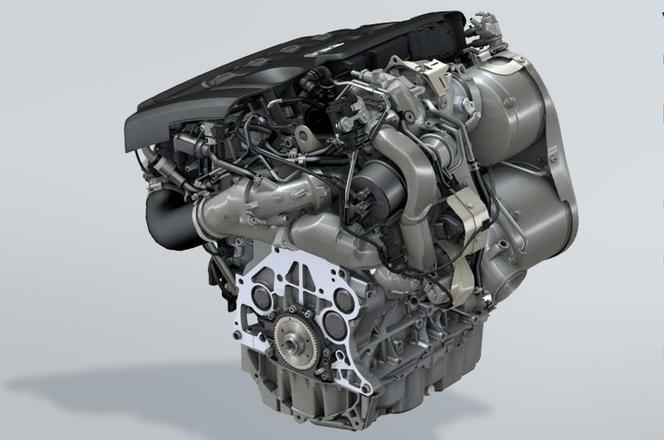Crisis in Catalonia: Europe remains speechless (V2)
(B2) The crisis is brewing in Catalonia, and Europe is doing a little minimum service today. It is true that the situation is tense: between a government, intransigent, so "right in the boots" that it comes to vacillate, and a Catalan power which seeks confrontation, and has obtained it, it is not not easy to find a third way. But what we see today borders on absurdity.
After Sunday's events, the reactions were indeed rather limited. The spokesman for the Commission limited himself, at noon, to calling for restraint. " We call on all relevant actors to move quickly from confrontation to dialogue. [...] Violence can never be an instrument in politics. “And Donald Tusk the President of the European Council took several hours to find a hundred characters to bring a variation on this theme:” I just spoke with Mariano Rajoy. Sharing his constitutional arguments, I call to find voices to avoid escalation and the use of force ».
just spoke to @MarianoRajoy. Sharing his constitutional arguments, I appealed for finding ways to avoid further escalation and use of force.
- Donald Tusk (@eucopresident) 2th October, 2017
And what about what has happened for several weeks. Europe played deaf and dumb for long weeks preceding the consultation organized by Barcelona. It did not seek to prevent the crisis, to mediate, to intervene in an escalation which seemed obvious and could spill over into Spanish territory. Setting up a commission, made up of a few "wise" Europeans, retired but with some experience, would not have really cost very much. It was within reach to imagine a solution to get out of the crisis.
Respect for the Spanish Constitution has a good back... We can speak more of a lack of anticipation, even of a certain cowardice. The European Commission has always received, sometimes up to the highest level – the President of the Commission – the leaders of the regions. As if to give them a role. Why did you receive the Scottish Nicola Surgeon, with great fanfare, the day after Brexit, to the chagrin of London? Why is the Commission intervening in Polish justice legislation? And, outside the borders of the EU, how were the Europeans able to wrest the independence of Kosovo from Serbia (even if five countries, including Spain, have never recognized this independence) and support it at arm's length, by opening the doors to membership of the European Union... And refusing such a thing to Catalonia. There are some really surprising logics here...
By receiving the head of Scotland Nicola Sturgeon in June 2016, the European Commission had much less "sentimentality" about the fate of the United Kingdom (credit: EC)
Can we really say that the independence of Catalonia, one of the richest regions of Spain, concerns only Madrid and Barcelona? It seemed tricky. If Catalonia obtains or wrests its independence, this risks having a snowball effect on other European parts tempted by autonomy. All the more so when the crisis is marked by increasingly clear-cut positions. All things considered, we find ourselves, here, faced with the same phenomenon that marked the former Yugoslavia in the early 1990s when Slovenia and then Croatia gained their independence, provoking a series of cascading reactions and several civil wars . We know that in this type of crisis, what matters is to quickly defuse any attempt at nationalism or violence... After that, it's often too late...
Moreover, this type of silent abstention, this ostrich policy, poses a problem of legitimacy for the European Union, when it wishes to express itself in the world. At the slightest slippage in a demonstration, in a ballot box stuffing, in Cameroon or Kenya, the European Union communicates (rightly so). But, to see policemen intervening in polling stations, held peacefully, on European soil, does not snatch from him more than a dozen words... and still very polite.
(Nicolas Gros-Verheyde)
NB: in this paper I do not seek to validate any of the arguments heard on either side. Talking about "Madrid's oppression" is as ubiquitous as calling this consultation a "democratic farce"? This is to prevent a crisis from degenerating and reaching a point of no return. This is the role of the European Union, its first role moreover (before all the others): to ensure that Europe is a continent of peace, democracy and dialogue.
NB 2: at B2, we did not have a "Europe" box in our "Crisis Zones" section, will we have to create one tomorrow?



The stuffing of ballot boxes in Kenya or Cameroon took place within the framework of a legal election, which is not the case in Catalonia (it was unconstitutional), where it was -legally- criminals, associations, not polling stations.
Which would tend to indicate that the independence of Kosovo (unviable country?) is also unconstitutional.
If Brussels gets involved, it is also playing the (anti-democratic) game of Barcelona which, having no more political project than Madrid, consists of taking Madrid and Brussels hostage, creating chaos in Catalonia.
Perhaps and without doubt that for Brussels, it is urgent to wait, hoping (or praying) that there are real political leaders in Madrid?
An alternative could be a royal intervention calling for new elections?
Wait & see…
ping: Crisis in Catalonia: Europe remains speechless (V2) | Shadow43